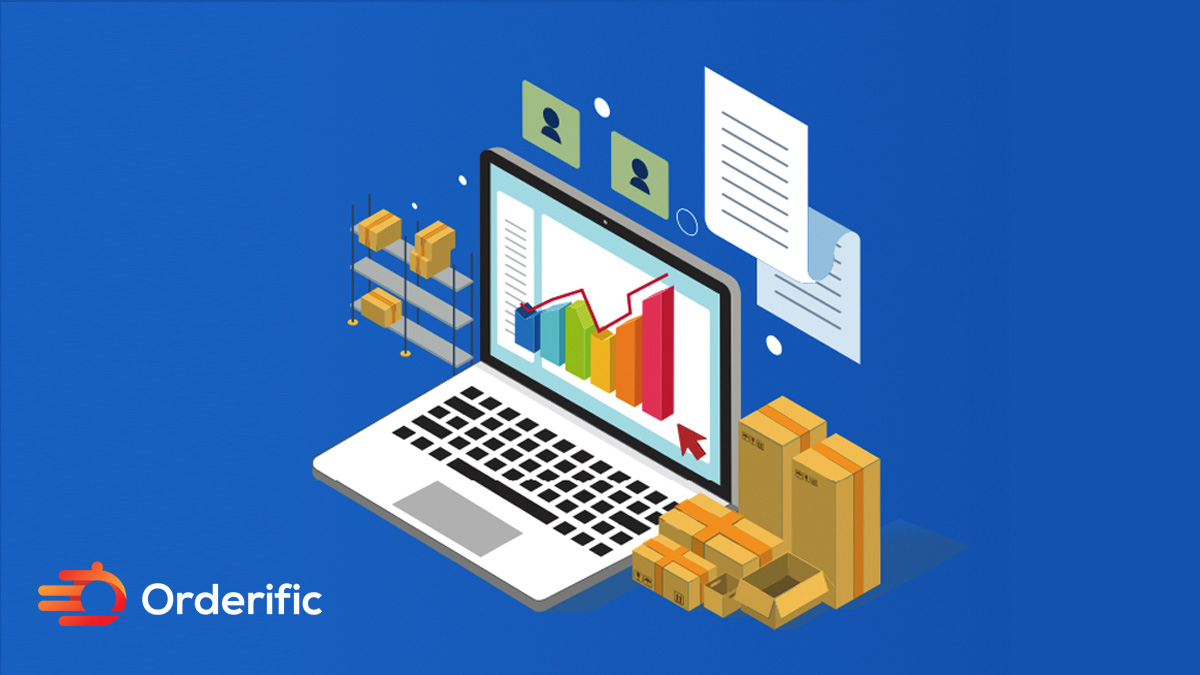Introduction
Welcome to the realm of inventory management in the juice business, a crucial component of your venture’s success. In this fast-paced industry, an efficient inventory management system is essential. It’s about more than just keeping track of your stock levels. It’s about understanding customer demand, managing your supply chain, and ensuring you’re always high on high-demand goods. From oranges for your fresh juice to bottles for your cold-pressed line, effective inventory management helps maintain a smooth flow of goods, ensuring customer orders are always fulfilled. Inventory management software can provide invaluable inventory visibility, enabling you to optimize stock levels, anticipate demand, and avoid excess inventory. But inventory management isn’t only about stocks and goods; it’s an integral part of your overall management strategy that can significantly impact your business’s cash flow. Let’s delve into these inventory management essentials every juice business must master!
What Is Food Industry Inventory Management Software?
Food industry inventory management software is a digital tool that enables businesses to track and manage their stock levels effectively. A robust inventory management system can provide juice businesses with real-time inventory data, tracking goods from raw ingredients to finished products, helping to ensure optimal stock levels and prevent excess inventory.
Effective inventory management is of utmost importance in the juice business, where the freshness of goods plays a pivotal role. To ensure optimal inventory management, it is crucial to have a deep understanding of customer demand and make necessary adjustments to stock levels accordingly. By leveraging advanced inventory management software, businesses can enhance their inventory control capabilities, continuously updating stock levels based on customer orders and harnessing valuable data for accurate demand forecasting. This enables companies to optimize their supply chain, minimize waste, and maximize customer satisfaction, ultimately driving growth and success in the competitive juice market.
Why Is Inventory Management Important In The Juice Business?
Inventory management plays a pivotal role in the success of a juice business. It encompasses various essential aspects, such as meticulous stock tracking and control, efficient supply chain management, and ensuring optimal inventory levels to meet customer demand.
Effective inventory management is crucial for maintaining a healthy cash flow and preventing the tying up of valuable funds in excess stock. This aspect of business management directly impacts profitability by minimizing wastage and ensuring a steady flow of goods through adequate inventory turnover.
By implementing robust inventory management practices, you can optimize the allocation of resources, streamline operations, and enhance customer satisfaction. Through meticulous planning and forecasting, you can ensure that your business consistently meets customer orders, avoids stockouts, and minimizes the risk of overstocking.
Benefits Of Using An Inventory Management System In Juice Business
An inventory management system offers a myriad of benefits to juice businesses. One of the core benefits is improved inventory visibility, which facilitates accurate inventory counts and aids in inventory optimization. You can anticipate customer demand, adjust your reorder point, and prevent stock-outs or excess inventory with real-time inventory records.
Another significant advantage is the impact on your supply chain management. With an effective inventory management system, you can streamline the flow of goods, from raw ingredients to finished goods, ensuring efficient order fulfillment. This, in turn, boosts customer satisfaction and fosters customer loyalty.
Key Elements Of Effective Inventory Management
There are several critical elements to effective inventory management. ABC analysis, for example, can help prioritize inventory items based on their importance, helping manage inventory more efficiently. Vendor-managed inventory, another technique, can streamline your supply chain, reducing the burden of inventory control.
An effective inventory management process should include periodic inventory management, where the physical inventory count is conducted regularly. This helps maintain accurate inventory records and aids in managing inventory outstanding.
Order fulfillment strategies, such as Economic Order Quantity (EOQ), can optimize purchase orders, balancing order size and carrying costs. This, in turn, can improve your inventory turnover ratio, an essential metric in inventory management.
Inventory Management Techniques For Juice Businesses
Juice businesses have unique needs when it comes to inventory management. With perishable goods, the need for a robust inventory management system is even greater. Using inventory management software, juice businesses can track their inventory of fresh fruits for juicing and bottles for packaging, ensuring they have enough stocks to meet customer demand.
Inventory tracking techniques such as barcode scanning can speed up inventory management, reduce errors, and improve inventory visibility. Advanced inventory control techniques such as re-order point and safety stock systems can also be beneficial for juice businesses to ensure they never run out of stock and can promptly meet customer demand.
8 Tips For Improving Inventory Management In The Food Industry
Know What You Have On Hand
Understanding your inventory is the first step toward efficient inventory management. For juice businesses, this means knowing the exact quantity of different fruits, vegetables, and other ingredients you have in stock. It’s also crucial to have a clear view of your packaged goods, supplies, and other assets. Using an inventory management system can greatly assist in maintaining an accurate count of your inventory items, ensuring you always know what you have on hand.
It’s also important to regularly update your inventory records, making necessary adjustments based on sales, new stock, returns, and any damages or losses. This real-time tracking boosts inventory visibility, enabling you to make informed decisions about reordering, production, and pricing.
Use An Inventory Management System
The use of an inventory management system is crucial for juice businesses. This software enables you to automate the tracking of inventory levels, sales, deliveries, and orders. Not only does this save time and reduce manual errors, but it also provides valuable data for analysis and forecasting.
For instance, inventory management software can help you determine the right reorder point for each product, ensuring you always have enough stock to meet customer demand, without tying up too much capital in excess inventory. It can also assist in managing the supply chain, providing visibility into your order fulfillment process and helping optimize your purchase orders and delivery schedules.
Leverage Technology For Inventory Tracking
Inventory tracking is an essential component of effective inventory management. By harnessing technology such as barcode scanning or RFID tracking, you can streamline the inventory management process, increasing accuracy and efficiency.
These tools allow you to quickly and easily update inventory records, reducing the risk of errors associated with manual data entry. They also provide real-time inventory data, helping you to maintain optimal stock levels, prevent stock-outs and excess inventory, and improve your inventory turnover.
Understand Your Customer Demand
Understanding customer demand is crucial for managing your inventory effectively. By analyzing sales patterns, seasonal trends, and customer feedback, you can anticipate changes in demand and adjust your inventory levels accordingly.
An effective inventory management system can provide valuable insights into customer buying habits, helping you to forecast demand more accurately and ensure you always have enough stock to meet customer orders. This can enhance customer satisfaction, reduce the likelihood of stock-outs or overstocking, and contribute to a smoother cash flow.
Keep Track Of Expiration Dates
In the juice business, an essential part of effective inventory management is keeping track of expiration dates. Due to the perishable nature of fruits, vegetables, and other ingredients used in juice production, these items have a limited shelf life. Neglecting the expiration dates can lead to spoilage, waste, and ultimately, financial loss.
By using an inventory management system, juice businesses can easily track the expiration dates of their inventory items. This system can send automated reminders as the expiration date approaches, prompting a timely review of the inventory and facilitating the necessary measures to either use or dispose of the items.
Ensuring Freshness: A Commitment To Quality
Maintaining the freshness of your inventory does not only prevent waste but also ensures the quality of your juice products. As a juice business, you want to deliver products that are fresh, flavorful, and full of nutrients. This is only possible if the fruits and vegetables you use are within their peak freshness period.
By closely monitoring the expiration dates, you can prioritize the use of ingredients that are nearing their expiration date. This method, often referred to as the ‘First-In-First-Out’ (FIFO) approach, ensures that older stock is used before newer stock, maintaining the freshness of your inventory and the quality of your juice products.
Rotate Stock Regularly
Proper rotation of stock is an integral part of effective inventory management, particularly in the juice business where perishability is a key concern. Regular stock rotation using the ‘First-In-First-Out’ (FIFO) approach ensures that older items are used before fresher ones, thereby minimizing waste due to spoilage and maintaining the freshness and quality of your juice products. Additionally, an inventory management system can automate this process, reducing manual effort, and ensuring accurate and timely stock rotation. It’s crucial to educate your staff about the importance of stock rotation and enforce compliance to maintain high standards of product quality and safety. Ultimately, regular stock rotation can enhance customer satisfaction, uphold your business reputation, and contribute to a healthier bottom line.
Store Food Properly
The proper storage of food products is a fundamental aspect of effective inventory management in the juice business. Given the perishable nature of fruits and vegetables, improper storage can result in premature spoilage and a significant waste of resources. Correct storage practices include maintaining appropriate temperatures to preserve freshness and prevent bacterial growth, segregating different types of produce to avoid cross-contamination, and using suitable containers that protect the food items from pests and environmental factors. An efficient inventory management system can also aid in managing the storage process by keeping track of where items are stored, making it easier to locate and use them in a timely manner. By adhering to these practices, juice businesses can ensure the longevity of their inventory, uphold food safety standards, and deliver high-quality products to their customers.
Don’t Overorder
Overordering inventory can result in a significant waste of resources, particularly in the juice business where raw materials are perishable. While having surplus stock may seem like a precaution against unexpected demand, it often leads to excess inventory that may spoil before it can be used, leading to financial loss. Therefore, it’s crucial to accurately forecast demand to purchase the right quantity of inventory. An effective inventory management system can aid in forecasting by analyzing sales patterns, seasonal trends, and customer preferences. Furthermore, maintaining strong relationships with suppliers can allow for more flexible ordering, enabling you to quickly respond to changes in demand without overstocking. By avoiding overordering, juice businesses can optimize their inventory levels, reduce waste, and enhance their economic efficiency.
Use A Just-In-Time Inventory System
A Just-In-Time (JIT) inventory system can be an excellent strategy for effective inventory management in the juice business. Based on the principle of having inventory items arrive exactly when they’re needed in the production process, JIT minimizes the need to store excessive amounts of raw materials, thus reducing the risk of spoilage and waste. This approach requires precise planning and efficient coordination with suppliers, but it can significantly enhance inventory turnover, reduce storage costs, and improve cash flow. By integrating a JIT inventory system with your inventory management software, you can automate the process, making it much easier to balance demand and supply effectively. This system also supports the ‘First-In-First-Out’ (FIFO) strategy as fresher ingredients are used promptly after arrival. Therefore, a JIT inventory system not only offers financial benefits but also contributes to delivering fresh, high-quality juice to your customers, reinforcing your brand’s reputation for excellence.
Stay Organized

Staying organized plays a pivotal role in efficient inventory management, especially in the juice business where managing perishable items is crucial. An organized inventory allows for smooth operations, ensuring that no item is misplaced or left unused past its expiration date. Utilizing an inventory management system can greatly assist in maintaining order, providing clear visibility of all items, their quantities, expiry dates, and their exact locations in the storage area. This system can also facilitate better planning and decision-making by providing valuable data on sales, deliveries, and order trends. A well-organized inventory also speeds up the order fulfillment process and improves customer satisfaction, as orders can be prepared and dispatched more quickly and accurately. Furthermore, it minimizes the chances of overstocking or understocking, leading to better inventory control and reduced waste. Hence, staying organized is an indispensable practice for effective inventory management in the juice business.
Review Your Inventory Regularly
Regular review of your inventory is an essential practice for efficient inventory management, especially in the juice business where the freshness of ingredients is pivotal for delivering quality products. Routine checks can help you maintain optimal stock levels, identify any discrepancies, and address potential issues such as spoilage or looming expiration dates. By using an inventory management system, you can automate these regular reviews, ensuring that your inventory data is always up-to-date and accurate. This system can generate real-time reports on various inventory aspects, such as stock levels, sales rates, and order trends, providing valuable insights for informed decision-making. Regular inventory reviews allow for continual improvement in your inventory management practices, contributing to reduced waste, improved cash flow, and enhanced operational efficiency. Hence, a routine inventory review is not just a task; it is an integral strategy for successful inventory management in the juice business.
Common Inventory Terms
Bills Of Materials
Bills of Materials (BOMs) are comprehensive lists that detail the raw materials and quantities needed to manufacture a particular product. In the context of a juice business, this could include quantities of different fruits, vegetables, and other ingredients. An effective inventory management system can integrate BOMs to ensure accurate tracking of materials, assist in planning, and provide an efficient way of measuring resource usage and costs. By understanding and utilizing BOMs, juice businesses can streamline their production process and inventory management.
Food Cost
Food cost refers to the total cost incurred for the ingredients used in product preparation. In the juice business, this encompasses the cost of fruits, vegetables, and other ingredients. Accurate calculation of food costs is critical to effective inventory management, as it directly impacts pricing, profitability, and waste reduction. An efficient inventory management system can aid in the precise calculation and tracking of food costs, enhancing overall business performance.
Landed Cost
Landed cost is the total price of a product once it has arrived at a buyer’s doorstep. The landed cost includes the original price of the product, transportation fees, customs, duties, taxes, insurance, currency conversion, crating, handling and payment fees. In the juice business, it’s crucial to calculate the landed cost accurately for effective inventory management. An efficient inventory management system can assist in tracking these costs, offering a comprehensive view of your financials.
Yield Management
Yield Management is a pricing strategy, aimed at maximizing profits through the management of inventory supply against consumer demand. In the juice business, yield management is essential for pricing optimization based on factors like seasonal availability of fruits and vegetables, peak demand times, and consumer preferences. Incorporating yield management into your inventory system can contribute to better financial performance and customer satisfaction.
Par Level
The Par Level is a minimum quantity of inventory items that must always be in stock to cater to the regular demand. In a juice business, maintaining par levels helps avoid stockouts, ensuring uninterrupted operations. An effective inventory management system can automate par level tracking, prompting reorders when stock falls below the set limit. By maintaining par levels, juice businesses can provide consistent service and meet customer expectations.
Buffer Stock
Buffer Stock is a reserve of inventory kept on hand to guard against unforeseen demand or supply interruptions. In the juice business, maintaining a buffer stock ensures business continuity even if there’s a sudden surge in demand or a supply chain disruption. An efficient inventory management system can keep track of these buffer stocks, ensuring you always have a safety net for your business operations.
Stock Turnover
Stock turnover refers to the number of times inventory is sold or used within a specific period. In the juice business, a high turnover rate indicates efficient inventory management and freshness of the product, enhancing customer satisfaction. Proper utilization of an inventory management system can aid in tracking and improving stock turnover rates, ultimately boosting profitability.
First In, First Out (Fifo)
First In, First Out (FIFO) is a vital inventory management principle, particularly crucial in the juice business due to the perishability of ingredients. It suggests that older stock should be used first, ensuring product freshness and reducing spoilage. An effective inventory management system can automate FIFO implementation, optimizing inventory turnover and enhancing product quality.
Just In Time (Jit)
Just In Time (JIT) is a strategic approach to inventory management that aims to align raw material orders with production schedules. In the juice business, this means ordering fruits and vegetables as they are needed in the production process, reducing inventory costs and waste. An effective inventory management system can facilitate this process, ensuring timely deliveries and preserving the freshness of ingredients.
Cycle Counting
Cycle Counting is a critical management strategy involving regular and partial counting. In the juice business, this aids in maintaining accurate inventory levels, spotting potential issues early, and reducing disruption caused by full inventory counts. A robust inventory system can streamline cycle counting, contributing to efficiency and accuracy of your operation.
Conclusion
In conclusion, effective inventory management is paramount to the success of a juice business. By understanding and implementing strategies such as proper food storage, avoiding overordering, using a Just-In-Time inventory system, staying organized, and conducting regular inventory reviews, businesses can optimize their operations, reduce waste, and enhance profitability. Familiarity with common inventory terms and concepts such as Bills of Materials, Food Cost, Landed Cost, Yield Management, Par Level, Buffer Stock, Stock Turnover, FIFO, JIT, and Cycle Counting can further aid in streamlining the inventory process. Making use of an efficient inventory management system can automate these tasks, ensuring precision, reducing manual labor, and allowing for well-informed decision-making.
Inventory management in the juice business can seem daunting, but with the right system in place, it can become a smooth and manageable aspect of your business operation. If you’re looking to streamline your juice business’s inventory management process, Orderific can help. Our inventory management system is specifically designed to cater to the needs of businesses dealing with perishable items, providing comprehensive solutions for all your inventory challenges. To see how Orderific can revolutionize your juice business, Book a demo today.
FAQs
How can inventory management software help reduce costs?
It can reduce costs by streamlining operations, minimizing waste, and optimizing stock levels.
What is a good inventory management software?
A good inventory software is one that offers real-time tracking, automated ordering, data analysis and is user-friendly.
How can we keep track of inventory for small businesses?
Small businesses can keep track of inventory using inventory software, spreadsheets, or manual tracking.
How do I find good inventory management tools?
Good management tools can be found through online research, reading reviews, and seeking recommendations from industry peers.
What are the key elements of inventory planning?
The key elements of inventory planning include demand forecasting, safety stock levels, reorder points, and lead time estimation.













